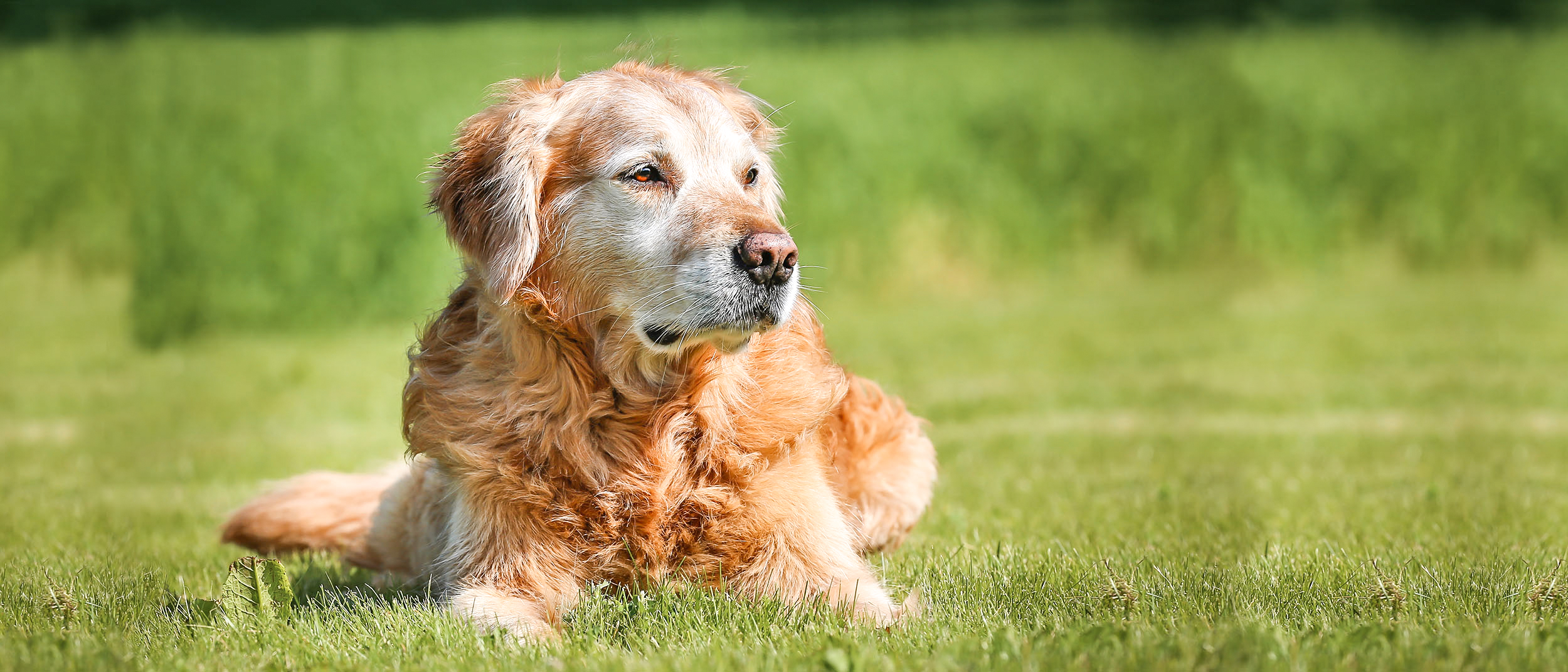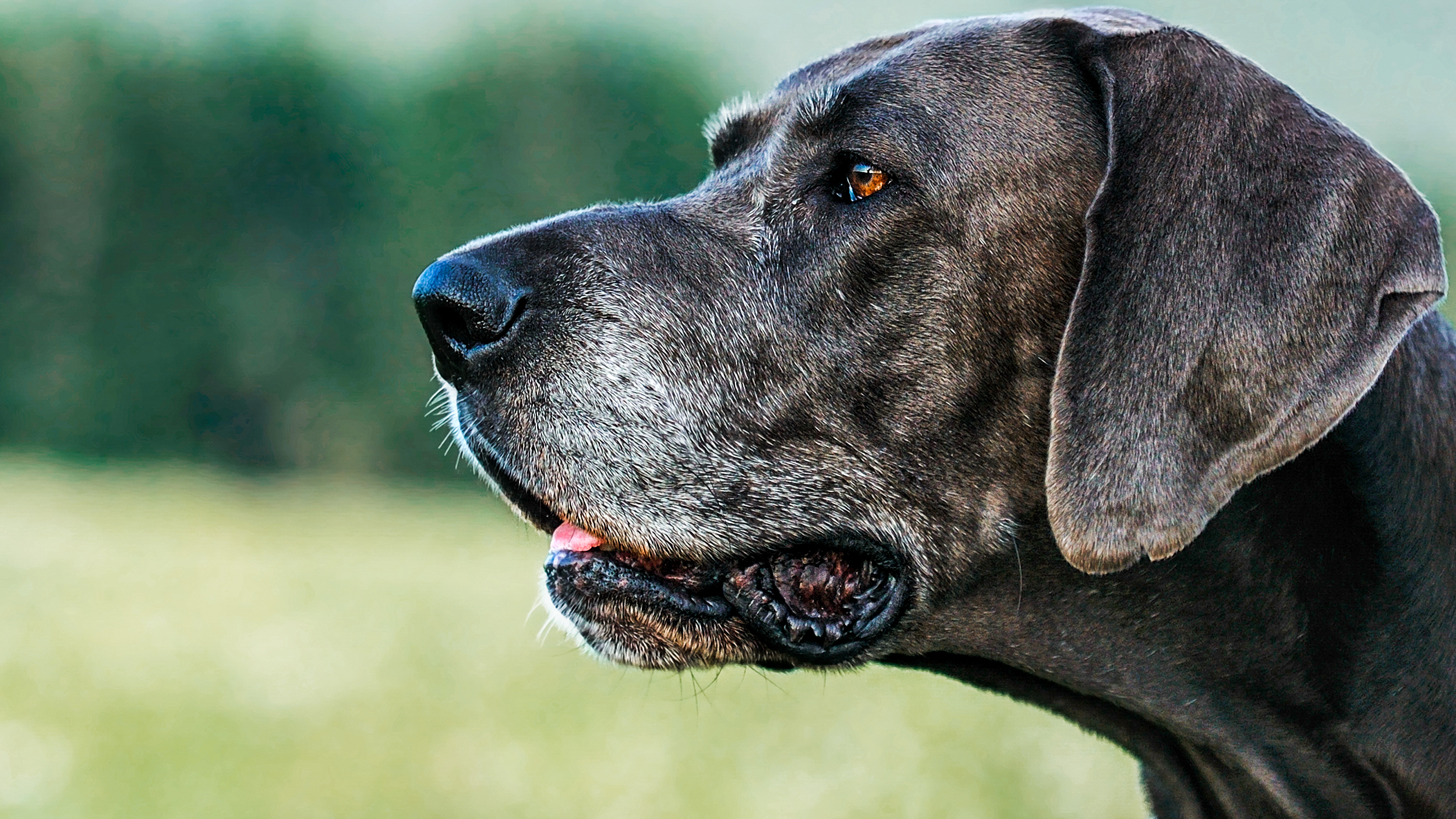Urinary incontinence in dogs

As your dog ages, you will notice changes in their behaviour, personality and physique. Incontinence is a common occurrence among older dogs, and it’s important you feel confident in being able to care for them.
If your older dog is incontinent, they’ll stop urinating in the same way as when they were younger; they may not recognise when they are urinating, leave trails of urine on the floor, or struggle to urinate. It’s crucial not to chastise them for this behaviour – they’re not doing this on purpose, but rather because they aren’t able to control these functions.
Just like humans, dogs can suffer from digestive problems which cause discomfort, unpleasant symptoms and sometimes wider-reaching health issues. Their diet is a key way to help manage digestive sensitivities and maintain a healthy digestive system.
What causes incontinence in dogs?
Just like in humans, when dogs age their physical form changes; muscles weaken and nerve control over different parts of the body can lessen. Incontinence can be caused by a simple ageing of the muscles around the urinary system, and a lack of control over those muscles.
Female dogs are more likely to develop incontinence than male dogs, and some larger breeds have a predisposition to this problem. This includes Boxers, Dobermans, Giant Schnauzers, Great Danes and German Shepherds. Among the sterilised female dog population, 30% of dogs weighing over 20kg suffer from incontinence; in smaller breeds this is less than 10%.
There are suggestions that obesity can have an impact on the likelihood of incontinence, particularly in neutered female dogs. The concept is that the weight of fat around the urinary system has a mechanical impact on the muscles, which can then lead to incontinence.
Underlying urinary issues can also cause incontinence, including inflammation of the urinary system and cystitis, an infection, or the development of ‘stones’ (called urolithiasis). Overall illnesses like diabetes or neurological disorders can also cause incontinence, so it’s important to take your dog to the vet as soon as you notice a change in their behaviour to do with urinating.

How can incontinent dogs be treated?
Depending on the cause of their incontinence, your dog will be treated in different ways. If it is a muscular issue, your vet may prescribe certain stimulants which induce better control of their urinary muscles. These are efficient in 75% of cases.
If your dog has an underlying urinary issue, your vet may suggest surgery to remove any stones in their system, prescribe antibiotics to treat infection, and help you choose a diet which can maintain good urinary health. The vet may also suggest lifestyle changes, such as encouraging your dog to be more active and therefore reducing the risk of further urinary problems.
If there is a larger medical cause, your vet will look to treat that as a whole, rather than only the incontinence.
If you see your dog’s behaviour around urinating has changed as they’ve aged, there’s no reason to think nothing can be done; make an appointment with your local vet who will be able to advise you on the best course of action.
Related Articles
Find a vet
If you have any concerns about your dog’s health, consult a vet for professional advice.
Like & share this page